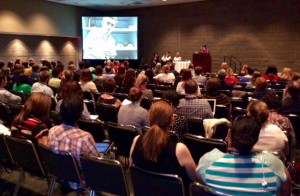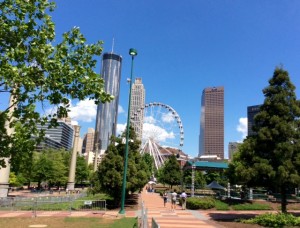By Tim Cooke in Atlanta, USA
Almost 5000 museum professionals have gathered in Atlanta for the world’s largest annual museums conference – the overarching theme is The Social Value Of Museums: Inspiring Change.
The Georgia World Congress Center in downtown Atlanta is playing host to the American Alliance of Museums Annual Meeting and MuseumExpo. The conference draws participants from right across the United States, Latin America, Europe, Africa the Middle East and the Far East.
This year’s main theme exploring social value is now a constant thread in museum thinking and influences how many museums present themselves as they seek to respond to wider political, economic and social agendas in ways which are intrinsically valid and also essential to those relying on public funding.
It’s a theme that chimes resonantly here, as Atlanta is the home city of Martin Luther King Jnr. Here – as in so many other places in the United States and elsewhere around the globe – equal rights do not equate to social justice. Many societies with equal laws and equal rights are not equal societies and fundamentally lack equality of opportunity.
Of course museums through their collections, interpretation, programming, inclusivity and accessibility can play a role in social engagement and exploration, fostering knowledge and a spirit of discovery. They offer many opportunities for social, intellectual and creative development which can be owned by each museum visitor.
Importantly, they can also contribute to and support a process which is individually profound, as facilitators in the formation of ethical thought and behaviour. This, as Martin Luther King argued so persuasively and with such conviction, is the arena in which human beings can and should learn to treat themselves and each other with dignity and charity as a matter of course.
Ultimately, Dr King was optimistic about ethical progress, saying “the moral arc of the universe is long but it bends towards justice.” Amen to that – but it is people who have to bend it. I hope museums will continue to be motivated to act as powerful agents in providing the thought space which supports such endeavour.



